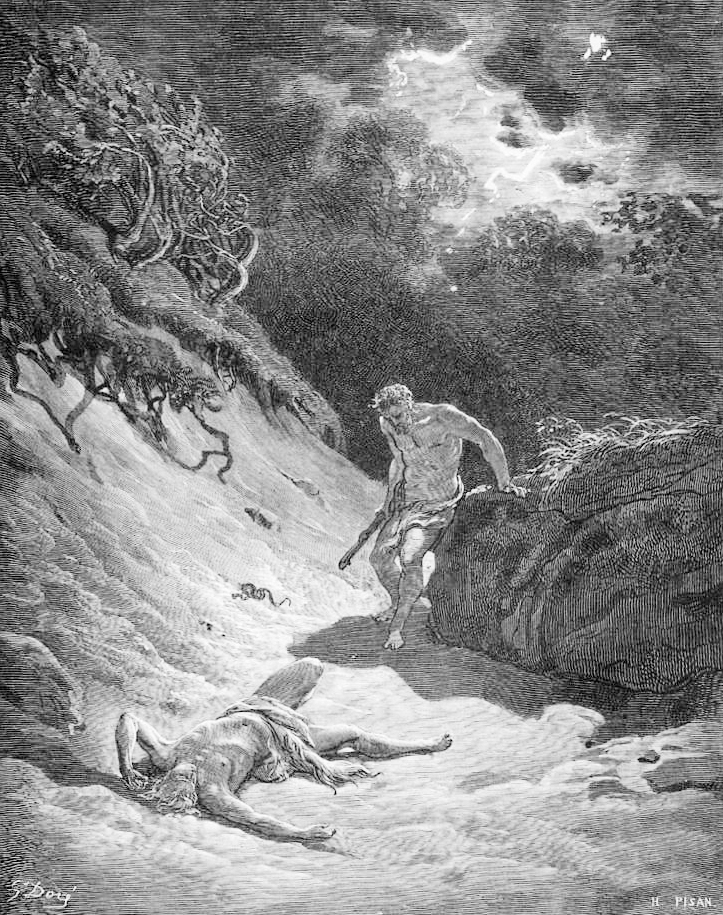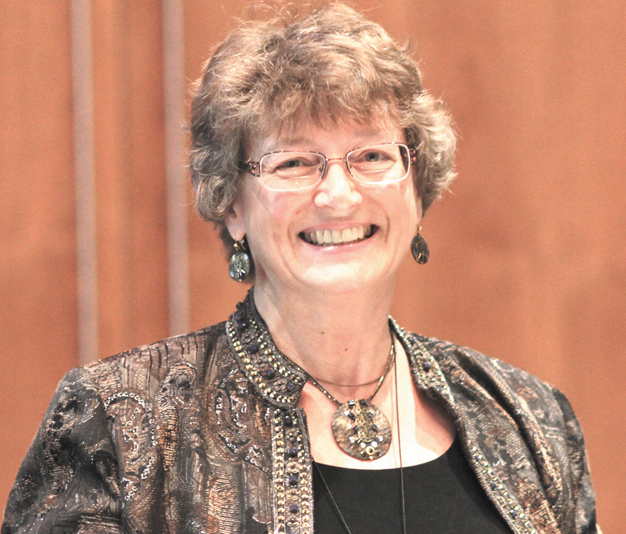Of Cain and Eden

Considering Creation Series
Jewish Family Education with Candace R. Kwiatek, The Dayton Jewish Observer
You might be surprised to learn that Cain was a spiritual genius, the inventor of an idea practiced by billions of people across time and place, as described by Rabbi Aryeh Fohrman.
That’s certainly not the first image of Cain that comes to most people’s minds. And yet, a careful reading of the text implies just that: Cain was the first human to bring an offering to God. Which makes his story all that more tragic.
Banished from the Garden of Eden, Adam and Eve had two sons, Cain and Abel.
“Abel became a keeper of sheep, and Cain became a tiller of the soil. In the course of time, Cain brought an offering to the Lord from the fruit of the soil; and Abel, for his part, brought the choicest of the firstlings of his flock. The Lord paid heed to Abel and his offering, but to Cain and to his offering He paid no heed. Cain was much distressed and his face fell. And the Lord said to Cain, ‘Why are you distressed, and why is your face fallen? Surely, if you do right, there is uplift. But if you do not do right, sin is the demon at the door, whose urge is toward you, yet you can be its master.’…Cain set upon his brother Abel and killed him. The Lord said to Cain, ‘Where is your brother Abel?’ And he said, ‘I do not know. Am I my brother’s keeper?’” (Gen. 4:2-9, abbreviated)
How did Cain degenerate from spiritual genius to exiled wanderer? What was his sin? The most obvious answer is that he killed his brother.
Less obvious but more significant are his earlier transgressions that led to this tragedy, and from which there is the most to learn.
As second-century scholar Simeon Ben Azzai cautions, “Averah goreret averah, transgression leads to another transgression.”
Cain’s downfall begins with the offerings. To Abel’s choice offering, God responds positively, but to Cain’s basic offering, God doesn’t respond at all, with no explanation. But also no criticism.
God’s stance is admittedly a bit of an enigma. After all, Cain invented the concept and brought the first offering, while his brother was only a copycat. It hardly seems an unadorned offering could be a transgression. Or is something else going on?
Despite God’s apparent slight, Cain could have responded gracefully, offering his brother a simple “Good job,” “Proud of you,” or “Wish I’d thought of those details.”
Instead, the text implies, he only focuses on himself and sees the negative: his own disappointment, how he’s been wronged, and how he’d wanted — even deserved — the acknowledgement and approval that his brother received. God’s leading question about Cain’s downhearted demeanor falls on deaf ears. Is a negative mind-set a sin?

Everything that Cain wants, Abel has; he is the only obstacle. God’s counsel to pursue good and avoid evil by mastering his thoughts and emotions likewise falls on deaf ears. Cain rejects self-control with predictable — and sinful — consequences.
Cain may even go so far as to blame God for the missing Abel. His famous question, “Hashomer achi anochi, Am I my brother’s keeper?” can also be read, “Isn’t the keeper of my brother Anochi (God)?”
In a related midrash, Cain argues, “You, Anochi, are the one who killed him, for if you had accepted my sacrifice as you did his, I wouldn’t have been jealous of him.”
Unwilling to take responsibility for his thoughts or actions, Cain compounds his sin by reassigning blame elsewhere.
One sin leads to another. What is the underlying force that propels Cain’s trajectory from one transgression to another? It’s a mind-set of covetousness.
There are clues in the text. One is Cain’s very name, from the Hebrew root meaning “acquire.”
Another is the unusual use of Anochi, linking the last word in Cain’s question about his brother’s keeper to the first word in the Decalogue, Anochi, God, where the final command is, “You shall not covet.”
Cain’s whole story is about coveting what Abel has and conspiring to acquire it.
Cravings and covetousness also led to the downfall of Adam and Eve in the previous story of the Tree of Knowledge in the Garden of Eden.
The linkage of the two stories is highlighted by textual echoes.
Both Adam and Cain are faced with the Divine question, “Where?” In both tales, the characters play the blame game: Adam blames God and Eve, who in turn blames the snake, while Cain blames God.
And the characters in both stories are exiled, expelled from the garden, or doomed to a life of wandering. And just as Cain’s story is linked to the Decalogue, vocabulary also links Eve’s experience at the tree to the 10th Commandment, “Do not covet or crave.”
Cain and Abel and the tree in the garden are cautionary tales, warnings about the power of our thoughts and emotions to direct our actions for good or evil.
Whether we allow them to rule without constraint or choose to assert mastery over them has far-reaching consequences.
“There is nothing theoretical, abstract, or academic about philosophy (thinking, mindset),” author Mark Gerson writes. “Our performance in our job as a philosopher will determine the quality of our relationships, our decisions, and ultimately our lives.”
Literature to share
The People’s Painter: How Ben Shahn Fought for Justice with Art by Cynthia Levinson. Known as “the people’s painter,” 20th-century artist Ben Shahn rejected the classic and modern traditions of the European greats of his era and painted real-life stories of the world. Committed to inspiring social change, his works featured eye-catching images of modern urban life, organized labor, immigration, and injustice. The arresting bold-hued illustrations that accompany the text highlight Shahn’s early training in lithography and graphic design. This gorgeous illustrated children’s book is highly recommended for children and adults alike.
Florence Adler Swims Forever by Rachel Beanland. The time is 1934 and Florence, a champion swimmer, wants to spend her summer at the Atlantic City beach training to swim the English Channel. Meanwhile, her sister is on hospital bed rest during a difficult pregnancy, and the girls’ father — oddly — invites a young German émigré to stay with the family. And then tragedy strikes. A 2020 National Book Award winner and Hadassah Book Club selection for 2021, this complex but fast-paced novel filled with twists and turns, historical events, and family secrets is an inviting late summer read.
To read the complete August 2021 Dayton Jewish Observer, click here.


